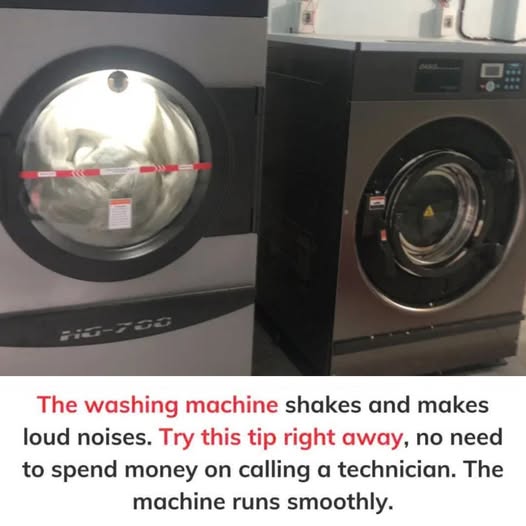ADVERTISEMENT
- How to Fix It:
If you suspect the shock absorbers are the issue, you may need to replace them. This can be a more involved repair, so if you’re not comfortable doing it yourself, it’s best to call a professional technician to inspect and replace the damaged - parts.
4. Loose or Broken Drum Bearings
Drum bearings support the drum’s movement during the wash and spin cycles. If the bearings become worn or broken, they can cause a loud, grinding noise during operation, along with excessive shaking.
- How to Fix It:
Unfortunately, replacing drum bearings is a complex repair that typically requires professional help. If your washing machine is making a grinding noise and shaking excessively, it’s a good idea to call a repair technician to assess the issue and determine if the bearings need replacing.
5. Faulty Drive Belt
The drive belt connects the motor to the drum and helps it spin. A loose or worn drive belt can cause the washing machine to shake and make loud squealing or thumping sounds.
- How to Fix It:
Inspect the drive belt for wear and tear. If it appears loose, frayed, or broken, it may need to be replaced. Depending on your model, replacing a drive belt can be a relatively straightforward repair, but it may require removing the back panel of the washing machine. If you’re unsure, consider calling a professional.
6. Items Stuck in the Drum or Pump
Occasionally, small objects such as coins, buttons, or hairpins can become lodged in the drum or the pump. These items can cause strange noises, and they can also disrupt the normal operation of your washing machine, leading to shaking.
- How to Fix It:
Inspect the drum and pump for any foreign objects that could be causing the issue. If you find something, carefully remove it. It’s also a good idea to check the washer’s filter for any debris that could cause blockages or issues during operation.
7. Overloaded Washer
An overloaded washing machine can strain the motor and other components, leading to excessive vibrations and noise. Even if your load seems balanced, overloading can prevent the washer from working properly.
- How to Fix It:
Ensure that you’re not overloading the washing machine. Always follow the manufacturer’s guidelines for load sizes. If you’re washing larger items like comforters, try washing them alone to prevent overloading.
Tips for Preventing Future Shaking and Noise
- Balance Loads: Always try to distribute clothes evenly in the drum, and avoid washing too many heavy items at once.
- Level the Machine: Ensure your washing machine is sitting on a level surface to prevent vibrations and noise.
- Regular Maintenance: Clean your washing machine regularly and check for worn or damaged parts to keep it running smoothly.
- Check for Objects: Regularly inspect the drum and pump for small items that may have been accidentally left inside, as they can cause noise and damage.
Final Thoughts
A washing machine that shakes and makes loud noises is often a sign of a simple issue, like an unbalanced load or uneven flooring, but it can also be a more serious problem, such as worn shock absorbers or broken drum bearings. Fortunately, most of these issues are fixable with a little attention, and many can be handled without the need for a professional repair.
By following the tips above and keeping an eye on your machine’s condition, you can prevent future noise and ensure your washing machine continues to work smoothly for years to come. If the problem persists after trying these solutions, it may be time to call a technician to inspect and repair your machine.
ADVERTISEMENT
ADVERTISEMENT
